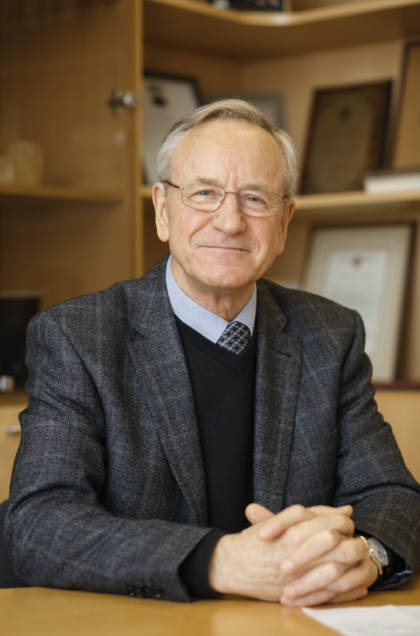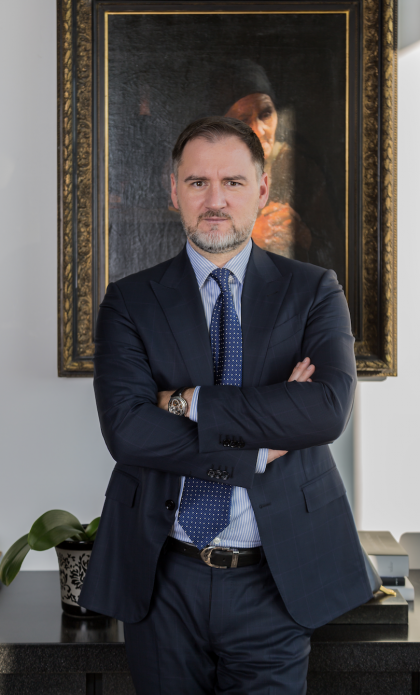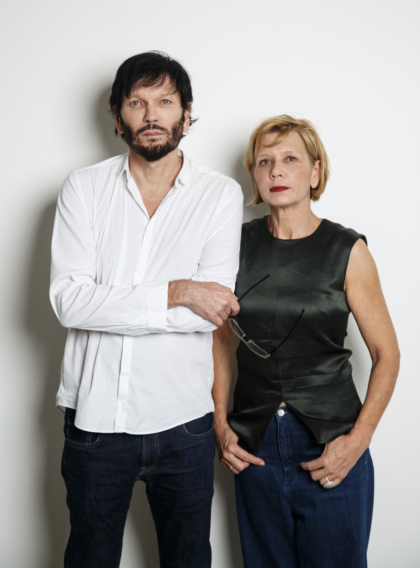CEO of clothing brand “Pando Moto”

TAILORED TO STAND OUT
You’ve been working for “Institutional Investor” for quite a while. What triggered you to make a U-turn, leave your comfort zone and dive into the fashion industry? Describe that experience.
Good question. I think at a certain point in your life, you have to choose whether you are going to create something by yourself or simply be a tool for implementing someone else’s ideas. For some reason, I choose to go ahead with my own. I do admit it was scary and it still is, but it is one of those triggers that motivates me, one of those things that constantly pushes me out of my comfort zone and keeps me on track. I have gained a lot of experience and self-confidence over the past 10 years, so I decided I was ready to give it a go on my own.
Can you tell us a little about the concept behind PANDO?
Taking inspiration from free spirits and merging this with premium streetwear staples, we create a unique wardrobe for those who seek to affirm, express, fulfil and enjoy themselves through our garments. The common denominator for everything we do at PANDO is our undying passion for quality fabrics, innovative in-house design, functionality and skilled production. Our designs offer a creatively different perspective to the mainstream, suggesting a thought-provoking, slightly twisted view of the world.
Where do you find design inspiration?
You see, what we are doing…it’s not manufacturing clothing. It’s way more than that. We are trying to highlight the whole idea, concept and identity (you name it) behind it. Our aim is to tell our story. So, it requires you to be in the centre of that viral moment and live with it. We have a great team of professionals that handles that creative task perfectly. Nevertheless, I’m constantly scanning the latest fashion news, participating in fashion shows across the globe and even catching some ideas by just looking at people in the streets. Inspiration is around us everywhere, you just have to keep your eyes wide open.
What is it that inspires you to create?
Nice people, cities and that sweet taste of satisfaction. That stream of passion coming out of that melting pot every time you start a new collection. Passion for creating something that ignites joy and inner satisfaction when you see the result, from sketch to shopping racks.
What are the main misconceptions about the fashion industry?
In my perception, there is a lack of understanding about the industry itself. Like other sectors, the fashion industry is progressively evolving and changing. Nowadays, when there is so much to choose from, people are buying the concept and idea that lies beyond your product, not just the product itself. Of course, there are fast growing brands with success stories, but it’s more the exception than the rule and quite often, it triggers the false understanding of easy money. You just need to buy some fabric, make a nice pair of joggers and eventually sell it for double the price. Here you go, you have 100% profit. But that’s not the way it works. First, you have to develop a feasible concept and combine R&D, sales and marketing coherently. That requires some time and a bit of effort.
I bet there is a lot of competition out there. What’s your take on that?
We feel confident about the domestic market. We provide the latest designs and top-notch quality on time. This is what sets us apart from the rest, and having the biggest retail chains on board helps to scale our work. This is a different story in European markets and particularly western markets, where the fashion industry has a long-lasting track record and the competition is challenging. You have to be persuasive, sharp and provide high added-value selling points. To enter one of these markets is our primary objective in 2015.
How do you measure success?
You have to find an equilibrium between business and passion. Both are vitally important. I don’t have a formula for measuring success, but for sure you have to feel confident and satisfied at the end of the day. You have to be sure that people admire and appreciate your efforts, and have the financial backing to develop this idea to the next level.
What is the main challenge facing start-ups?
There is no formula, every case is individual. But the fundamentals, however, are to stay on the right track and keep pushing forward. Eventually, you will be rewarded with success. Of course, the purpose has to be realistic and the idea has to be feasible. The rest depends on your persistence and motivation, no matter what business you run.
What makes a good entrepreneur?
Smart, intelligent, having a college degree, having loads of free money and being outgoing. But to be honest, little of this is actually required to launch and sustain a successful business. First, an entrepreneur has to keep his eyes wide open and try to catch a market opportunity and run as fast as he can. Once I heard a saying: “It’s not the big that eat the small…It’s the fast that eat the slow”, and it perfectly describes the idea. Plus, you have to be constantly motivated all the time and be prepared to take hits and keep moving forward. I think that’s the hardest part. But, it eventually pays off. I haven’t had mine yet, but I’m looking forward to it.
What does the future hold for you?
Recently, I heard a speech by Tim Minchin (an Australian comedian) who was laughing about the “life dream” concept, saying that by trying to achieve it, you might as well already be dead or if you are lucky, you can catch that shiny dream in the corner of your eye. So instead, he advocates that you be passionate and dedicated in the pursuit of short-term goals. I’m not fully in agreement, but there is similar pattern in business start-ups. You never know where they will end up or how they will rollout.
Currently, the objective is to establish sales in a few European markets and to raise capital for the next leap. I admit it’s not easy, but I believe in PANDO and I trust that someday it will rollout into something massive.
There is no formula, every case is individual. But the fundamentals, however, are to stay on the right track and keep pushing forward.
Marius Bieliauskas





